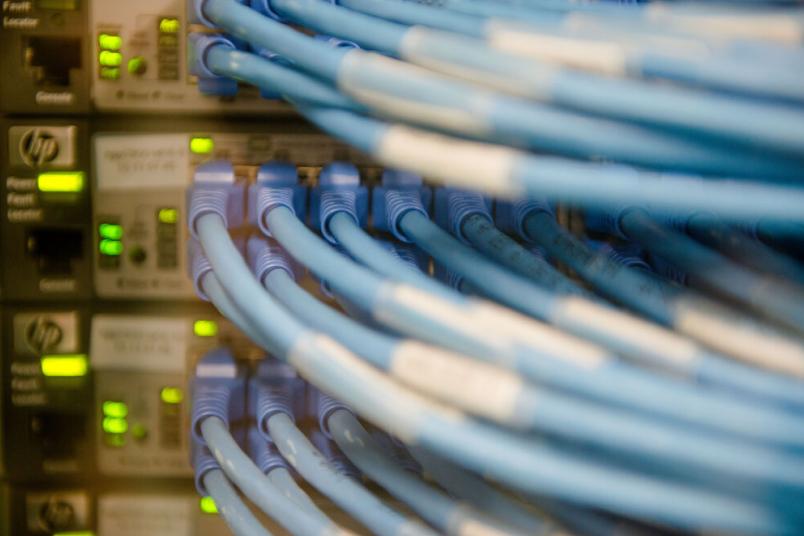
Funding Boosting the shared use of research data
A total of eleven consortia in which Ruhr University Bochum is involved are now receiving funding from the National Research Data Infrastructure.
For the first time, the Conference on Research Data Infrastructure has brought together various stakeholders dealing with research data management. Numerous members of Ruhr University Bochum from different consortia of the National Research Data Infrastructure, NFDI for short, were present. Scientific data can exist in many formats, making collaboration across disciplinary boundaries quite complicated. The long-term goal is to store data in such a way that it is findable, accessible, interoperable and reusable, thus complying with the FAIR principles.
FAIR principles
A total of eleven NFDI consortia involving Ruhr University Bochum are currently receiving funding from the federal and state governments. Three of them joined in the most recent application round in 2022 so far. In 2023, RUB also joined the NFDI4Earth consortium. Each consortium consists of numerous research institutions from all over Germany.
The most recent consortia involving Ruhr University Bochum
Humans affect nature globally in an incalculable manner. Therefore, researchers are currently discussing whether humanity is already in a new geological age, the Anthropocene. The causes of this Great Acceleration are complex and affect all spheres of the Earth system. Earth system scientists are working together in international and interdisciplinary networks with the overarching goal of understanding the functioning and interactions within the Earth system and addressing the multiple challenges of global change. The NFDI4Earth consortium therefore aims to provide fair, coherent and open access to all relevant Earth system data, innovative research data management and data science methods. From Ruhr University, researchers specialising in the analysis of geodata, Professor Andreas Rienow and Dr. Valerie Graw from the Faculty of Geosciences, are involved.
The team headed by Professor Nina Babel from the university hospital Marien-Hospital Herne is involved in the NFDI4Immuno consortium. The focus of the consortium is on immunological data. This mainly involves sequencing data of immune receptors and data from flow cytometry, a method for recording the quantity and distribution of individual cells in the blood. While the data is primarily collected from humans and mice, data from other animal species is likewise recorded – and stored in standardised data storage systems. In the future, this will help researchers improve the definition of what constitutes a healthy immune system and therefore make it easier to detect disease-relevant immune characteristics. The data will also improve diagnostic capabilities by making artificial intelligence more sensitive. The researchers come from the fields of medicine, bioinformatics, tumour research and zoonoses, to name but a few. The budget is 14 million euros over 5 years.
The NFDI4Objects consortium explores the material heritage of human and environmental history spanning some three million years. It’s geared towards the data life cycle of archaeological objects: from recovery through collection to analysis and preservation. A number of disciplines are involved, including various archaeological disciplines, anthropology, construction research, archaeobotany, zooarchaeology, archaeogenetics and archaeophysics. Researchers from Bochum are Professor Thomas Stöllner and Professor Constance von Rüden from the Institute of Archaeological Studies, in collaboration with their partner Deutsches Bergbau-Museum Bochum.
Historical data is also the domain of the NFDI4Memory consortium. Its focus is not only on the data itself, but also on the historical context in which the data was originally created and subsequently collected. Researchers from Ruhr University Bochum include Professor Frederik Elwert, Professor Kianoosh Rezania and Professor Jessie Pons from the Center for Religious Studies (CERES). In addition to historical studies, the consortium also includes many regional studies and religious studies. Moreover, NFDI4Memory explicitly integrates cultural heritage institutions such as archives and museums to develop new solutions for physical and digital access to historical data holdings. CERES contributes mainly to issues of non-European and religion-related research.
About the National Research Data Infrastructure
The National Research Data Infrastructure (NFDI) has been set up to systematically develop, sustainably preserve and make accessible the data holdings of the scientific and research community and to bring them together in national and international networks. It’s being established in a process driven by the scientific community as a network structure of autonomously operating consortia and will develop a future-oriented framework for research data management. The Federal Government and the federal states will provide up to 90 million euros annually from 2019 to 2028 for the establishment and promotion of the NFDI.